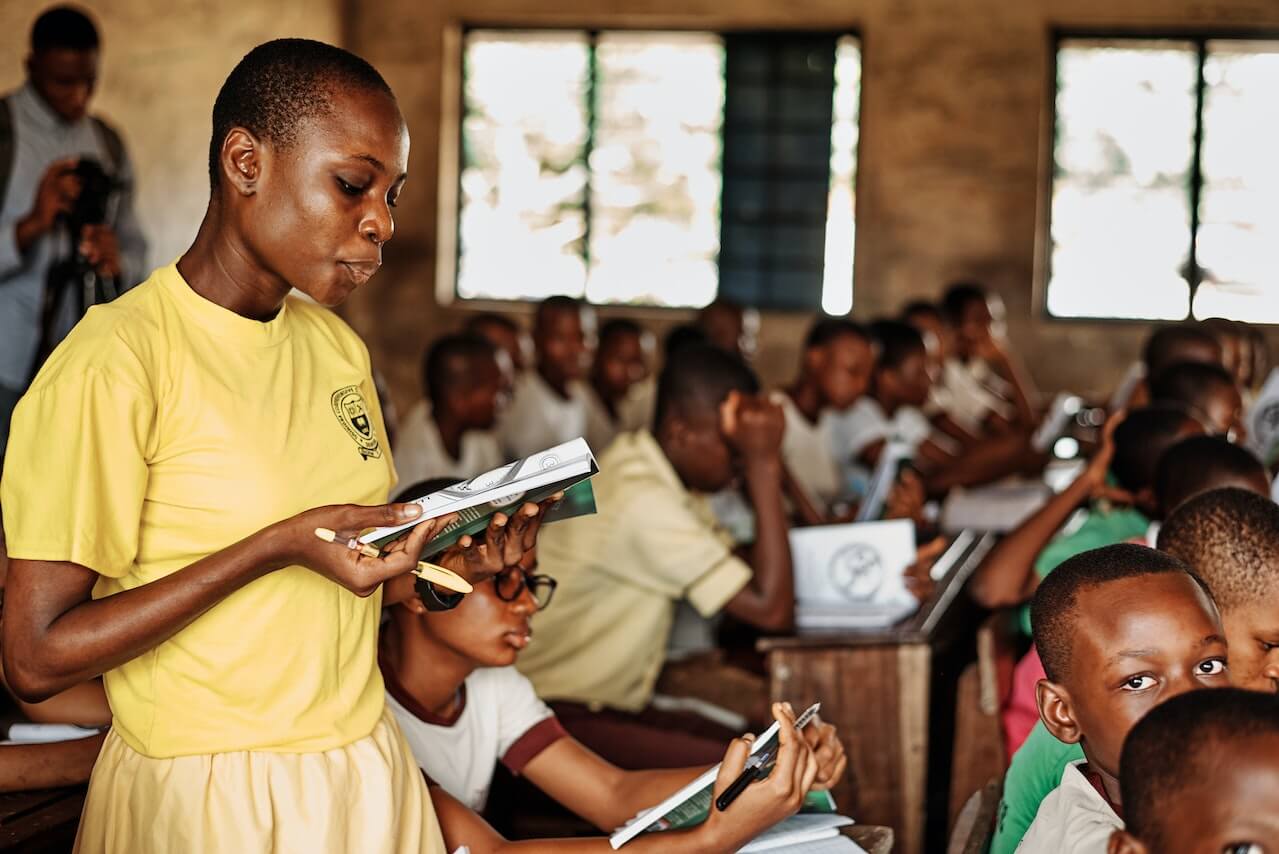Provision of early childhood education is integral to developing an educated population especially in developing countries like Zambia. Early childhood education provision in Zambia has undergone different historical shifts which have shaped the current situation.
In this article, I bring out some of the important aspects of early childhood education and the strides that the government of the Republic of Zambia has scored thus far. You can find a brief overview of early childhood education in selected countiries in the SADC region, in this article. You can read about reasons to go bact to school here.
A Historical Overview of Early Childhood
The concept of early childhood education as we see it now was imported from Europe by the colonial administration. As in other levels of education, early childhood education in British colonies was based on the British education system.
During the colonial period, early childhood education and care was incorporated within the mainstream education system and aligned with the British English education system.
However, there were infant schools independently established in the colonies for poor settlers and Indigenous children. Infant schools functioned similarly to those in Britain; basic academic and subject knowledge were offered alongside religious instruction.
In Zambia, as in other colonised countries, early childhood education was implemented in Sub-Standard A and B, corresponding to England’s nursery and reception years (Kaunda & Ailwood, 2021).
Children began their formal schooling with these two preschool years before going on to primary school. During the period of colonisation, the work of teaching was mostly undertaken by missionaries as Zambians were not eligible to become teachers in the Eurocentric education system (Banda & Mwanza, 2017; Kaunda & Ailwood, 2021).
The footprint of this education system can be seen today in Zambia. It has had an impact on the worldviews of African children who go through the British system of education.
Coming from an Indigenous context where the content was embedded in community practices including work, African children then went to formal schools which offered the literary and academic components of education (Adeyemi & Adeyinka, 2002).
This was different from African Indigenous ways of education in which the content was part of real-world embedded community practices.
Influence of Early Childhood Education on African Minds
Proverbs 22:6 says, ‘train up a child in the way he should go, and when he is old, he will not depart from it.’ This scripture is was truer for African children who attended infant schools.
So, as formal education took hold of children’s learning in Africa, it is reported that children who went to Eurocentric schools were indoctrinated against their own culture and knowledge systems (Thiong’o, 1981).
They were taught to view the world from a Eurocentric perspective, and the former colonial master’s language was promoted (Sibani, 2018). This was the beginning of colonisation of the mind which taught Africans to fully embrace European ways of doing and to hate African ways of knowledge creation and sharing.
While today, Africans appreciate the role of formal education, it has left a huge impact on the harmony and serenity that Africans had with the language, nature and the cosmic environment (Achebe, 1958).
Further, it has broken down how Africans pass on the knowledge, skills, values, beliefs and norms that built communities held together by relations among people, the environment, and the spiritual realm, all of which were based on the totality of life (Amayo, 1985).
Those who went to school were given Eurocentric knowledge to the detriment of African knowledge systems and culture (Thiong’o, 1965). Africans who graduated from mission and colonial schools were enticed with low level jobs and responsibilities.
Missionaries used those who learned how to read in a conventional way to spread the gospel while the colonial masters used them to fill the positions of clerks and other lower government positions (Chishiba & Manchishi, 2016; Mwanakatwe, 1971).
Today, formal education in Africa refers to education associated with schooling which started with the coming of missionaries and British colonisers. Education has taken this form and dismissed the African view of education. Howver, there are sympathisers who are advocating for africanising early childhood education in Africa.
Early childhood Education from Independence to 2013
In 1967, following independence in 1964, the education system was restructured, and early childhood care, development, and education (ECCDE) became the responsibility of local governments to oversee. The Ministry of Education then assumed the role of preschool teacher provision, materials development and monitoring standards in preschools. However, this was only on paper.
The position taken by the Zambian Government meant that no public schools would offer preschool education and so there were no preschool teachers employed by the government.
Further, these policy changes meant that while private operators and local councils participated in the provision of education, poor families could not take their children to early childhood schools because they were expensive (Ministry of Education Science Vocational Training and Early Education, 2013).
The decentralisation of early childhood education revealed the lack of support by the central government for the early childhood sector. This system remained in place for several decades, and with time, the decentralisation of the early childhood education curriculum ‘resulted in uncoordinated, fragmented and sub-standard early childhood education’ (Ministry of Education Science Vocational Training and Early Education, 2013, p. 5).
By the 1990s, young children’s formal education was almost invisible in most African countries including Zambia because only a little about young children was reflected in documents and policies, except in the area of health (Aidoo, 2008).
This was worsened by the lack of preschool teachers as few Zambians were trained to teach early childhood education (ECE). Mwanza (2016, p. 117) noted that, ‘even after independence, the emergent leaders were still dependent on mission societies and British agencies to provide the expertise, manpower, and training skills required for effective teaching, as well as the production of learning materials’.
The lack of government trained teachers at independence resulted from the fact that the interest of missionaries was to spread the gospel, not to educate the population with the advanced skills necessary for development.
Current situation Early childhood education
The 2013 curriculum brought back ECE into mainstream education. The starting age in the Zambian education system is 3 years for preschool, moving into Grade 1 at 7 years of age. One is expected to complete primary and secondary education at the age of 19 years.
According to the Ministry of Education Science Vocational Training and Early Education (2013): ‘Early Childhood Care, Development and Education refers to both non-formal and formal service provision, which prepares children for entry into Primary School Education’ (p. 26).
Organised formal education between the age of 3 and 6 years relates specifically to academic education including early childhood education (ECE) or preschool (Temba, 2014 ).
As stated earlier, the government of the Republic of Zambia abandoned the provision of ECE after independence until 2014 when ECE was reintroduced under the Ministry of Education. Therefore, all the contextual information given in this and later sections relate to efforts made since 2013.
Levels of Early Childhood Education in Zambia
ECE in Zambia has two levels. These are presented below.
Day-Care/Creche
This level caters for children aged 0 to 2 years. Day-Care is a service provided to parents who work or have other commitments, which makes it difficult for them to look after their young children at home.
The children are dropped at the Day-Care Centre in the morning and picked up later in the day when parents have finished work (Shikwesha, 2014). The centre stands in for the parents as it provides care, affection and love to the young children.
Day-Care provides a homelike environment to children as parents are busy with their schedules. The government of the Republic of Zambia does not provide this level. It remains in the hands of private providers who immerse children in Western forms of day care.
In fact, most Day-Care Centres surveyed in Zambia function like academic units teaching children like in formal schools.
Early Childhood Education (ECE)
At this level, the Ministry of Education is responsible for early education for children falling in the age ranges of 3 to 4 and 5 to 6 years. These are Nursery and Reception respectively.
The Nursery level caters for learners aged 3 to 4 years to develop socially, physically, mentally, and emotionally by providing them with playmates and play resources.
The focus of nursery centres is the promotion of social interaction of young children from different social backgrounds through play. Emphasis at this level has been on play-based learning (Ministry of Education Science Vocational Training and Early Education, 2013).
The Reception level is responsible for learners aged 5 to 6 years. This is a preparatory stage for entry into Grade 1.
Therefore, the teaching and learning at this level is largely through guided and unguided play with formal teaching (pre-academic) taking about 40% of the program.
The academic component prepares them for smooth transition to formal education at Grade 1 (Ministry of Education Science Vocational Training and Early Education, 2013; Shikwesha, 2014).
ECE focusses on the holistic development of the child in the following Developmental areas:
- Physical development – Fine and Gross Motor Skills Development;
- Social, Emotional, Spiritual and Moral Development;
- Language Development (receptive and expressive language);
- Aesthetic Development or Appreciation of Beauty; and
- Cognitive and Intellectual Development (MESVTEE, 2013).
The focus areas shown above for preschool education lack the Indigenous aspects of education because of the reliance on a colonial form of education.
ECE Content Areas
The content areas for ECE is dominated by play and pre-learning activities based on the following learning areas:
- Social Studies
- Integrated Science
- Pre – Mathematics
- Literacy and Language
- Expressive Arts
Looking at the core areas of the ECE curriculum, one concludes that at this level, much time and emphasis is devoted to social interaction and play based learning. The social interaction which consists of guided and unguided activities of different types is meant to develop various skills, positive attitudes, and values.
The language of literacy instruction and language of instruction at this level is a familiar Zambian Language. However, the content areas and the proposed teaching reflect fewer Indigenous Knowledge Systems (IKS). The next section presents the training of ECE teachers in the new curriculum.
Early Childhood Education Teacher Training
To move towards a qualified ECE workforce in Zambia, the Zambian Education Curriculum Framework of 2013, requires that all ECE teachers in Zambia should hold a minimum of a diploma to be able to teach in Zambian public preschools.
To be admitted for enrolment in a preschool teacher education institution, prospective student teachers were required to hold a school certificate with 5 O-levels, including mathematics and English (Ministry of Education Science Vocational Training and Early Education, 2013; Mumba, 2018).
Both private and public universities involved in teacher training offer both in-service and preservice training for ECE teachers. These colleges and universities offer diplomas and degrees respectively.
The aspiration of the Ministry of Education is to have a bachelor’s degree as minimum qualification for all ECE teachers soon. The degree program for preservice programs is 4 years or more while the diploma course is not to be less than 3 years (Ministry of Education Science Vocational Training and Early Education, 2013).
These programs are relatively flexible, with teacher education institutions empowered to determine their courses depending on whether students are in-service or preservice, or require short courses for professional development (Mumba, 2018). Early childhood teachers who wish to upgrade their certificate or diploma to degrees may be exempted from some subjects.
Students in the diploma programs complete two professional teaching experiences (teaching practice (TP)) in two 13 week school terms, the first one being in term one of their second year, and the second in the first term of their third year (Muyangali, 2018).
ECE preservice teachers in universities studying for a bachelor’s degree are required to attend school-based professional experience for one full 13-week school term. During the school-based professional experience, ECE teachers are assigned tasks whereby they ‘demonstrate progressive proficiency in a variety of learning areas, teaching and professional skills’ (Ministry of Education Science Vocational Training and Early Education, 2013, p. 48).
Further, short courses intended for teacher professional development can be offered by universities and teacher training colleges, varying in form from one week to twelve weeks (Ministry of Education Science Vocational Training and Early Education, 2013).
The current ECE teacher education course is envisaged to prepare teachers to teach preschool children aged between 2 and 6 years old within ECE centres. This means that in Zambia there is no teacher education qualification to work with 0- to 2-year-olds.
Key competences to be taught at all teacher training colleges and universities are prescribed in the 2013 Zambian Education Curriculum Framework.
In addition, teacher education programs aim to graduate teachers with high levels of competences in ‘material that is to be taught, skills in different teaching methodologies, understanding educational foundations, creativity, constructiveness and innovation (skill acquired) and providing competent leadership’ (Ministry of Education Science Vocational Training and Early Education, 2013, p. 49).
Moreover, information and communication technology (ICT) is included in all training colleges to equip preschool teachers with ICT skills needed for new learning areas which require the use of ICT. All ECE teacher educational programs include education foundation courses and teaching courses.
ECE Teacher Educational Foundation and Teaching Courses
Education Foundations
Under the current ECE teacher education curriculum, foundation courses include child psychology, history and philosophy of early childhood education, production of aids (teaching/learning aids), sociology of early childhood education, guidance and counselling, research methods, health, nutrition and first aid, organisation and management of early childhood education, early childhood special education and entrepreneurship education.
Teaching Courses
Teaching courses in the current ECE teacher education curriculum include pre-literacy and language, music, games and dances, expressive arts, pre-mathematics, information and communications technology, environmental science, social studies, and home economics (Ministry of Education Science Vocational Training and Early Education, 2013, pp. 50-51).
These study areas are the core areas around which a diploma or degree program is envisaged to be based. The Ministry of Education has devised mechanisms through which colleges are regulated to ensure they are following these core curriculum areas.
This is done by imposing teacher education curriculum on teacher training institutions, describing core content area and key competences to be covered and the duration of the course both at diploma and degree levels.
The Ministry of Education work by linking the school curriculum to teacher education and finally, establishing the Teaching Council of Zambia that ensures that colleges are adhering to the standards outlined by the ministry of education through the enactment of the Teaching Profession Act No. 5 of 2013 (Government of Zambia, 2013; Ministry of Education Science Vocational Training and Early Education, 2013; Simuyaba & Chibwe, 2016).
Challenges ECE Provision
Teaching in early childhood remains fraught with challenges. Given the current conditions of under-resourcing for primary schools, scarcity of materials such as playgrounds, classrooms, books, and other teaching aids necessary for teaching literacy, preschool teachers find it hard to follow the guidelines as some of them require sophisticated materials.
In the context of this scarcity of existing resources, introducing ECE classes into already under-resourced primary schools has meant displacing some of the primary children in order to accommodate early childhood learners, thereby reducing enrolment at primary level (Thomas & Thomas, 2009; Zuilkowski et al., 2012).
Further, the poor economic condition of the country means that Zambia will continue to rely on donor funded educational programs which in turn impose dominant views of education through materials donation, curriculum development and teacher education in in turn repeats the cycle of mental colonisation (Kaunda, 2022; Kombe & Herman, 2017).
References
Achebe, C. (1958). Things fall apart. Heinemann.
Adeyemi, B. M., & Adeyinka, A. A. (2002). Some key issues in African traditional education. McGill Journal of Education, 37(2), 223-240.
Aidoo, A. A. (2008). Positioning ECD nationally: trends in selected African countries. In M. Garcia, A. Pence, & J. L. Evans (Eds.), Africa’s future, Africa’s challenge: early childhood care and development in Sub-Saharan Africa (pp. 29-49). The International Bank for Reconstruction and Development / The World Bank.
Amayo, G. N. (1985). Indigenous traditions of early childhood in Africa: Their meaning and relevance. BERC Bulletin, 155(7).
Chishiba, G. M., & Manchishi, P. C. (2016). The language strategy in the Zambian educational system from 1924 to 2014. International Journal of Language and Literature, 4(1), 54-59.
Government of Zambia. (2013). The Teaching Profession Act No. 5 of 2013. Lusaka: Zambia
Kaunda, L. R., & Ailwood, J. (2021). Early childhood education and care in Zambia: ECE provision and teacher education. In B. Wendy & G. Susanne (Eds.), International Perspectives on Early Childhood Teacher Education in the 21st Century. Springer.
Kaunda, R. L. (2022). Developing children’s early literacy in Zambian preschools: A postcolonial exploration of preschool teachers’ beliefs, understandings and practices [Thesis, The University of Newcatle]. Newcastle.
Kombe, M. L. C., & Herman, C. (2017). Can education innovations be sustained after the end of donor funding? The case of a reading intervention programme in Zambia [Article]. Educational Review, 69(5), 533-553. https://doi.org/10.1080/00131911.2016.1265917
Ministry of Education Science Vocational Training and Early Education. (2013). Zambia education curriculum framework 2013. Lusaka: Curriculum Development Centre
Mumba, B. (2018). A comparative study between turkey and Zambia teacher education system [Thesis, Mersin University]. Mersin.
Muyangali, M. (2018). Beyong the ordinary pedagogy: Focus on the development of love, care, and belief in the early childhood teacher training in Zambia eNSPIRED Learning Week, Kitwe, Zambia.
Mwanakatwe, J. M. (1971). The growth of education in Zambia since independence. Oxford University Press.
Mwanza, D. S. (2016). A critical reflection on eclecticism in the teaching of English grammar at selected Zambian secondary schools [Thesis, University of the Western Cape]. Western Cape.
Shikwesha, R. A. (2014). Factors affecting the provision of early childhood education in government primary schools: a case of selected schools in Kabompo District of North Western Province of Zambia [Dissertation, University of Zambia].
Sibani, C. M. (2018). Impact of western culture on traditional African society: Problems and prospects. International Journal of Religion and Human Relations, 10(1), 56-72.
Simuyaba, E., & Chibwe, P. (2016). Teacher professionalism in Zambia: Practices, challenges and prospects in the post-2015 era. The IIER International Conference, Sweden, Stockholm.
Temba, S. (2014 ). “Imiti Ikula Empanga” the position of early childhood care and development in central, Zambia [Dissertation, Norwegian University of Science and Technology ]. Norway.
Thiong’o, N. W. (1965). The river between. EAEP.
Thiong’o, N. W. (1981). Decolonizing the mind; The politics of language African literature. Heinemann.
Thomas, C. M., & Thomas, M. A. M. (2009). Early childhood care and education in Zambia: An integral part of educational provision? Current Issues in Comparative Education, 11, 6-14.
Zuilkowski, S. S., Fink, G., Moucheraud, C., & Matafwali, B. (2012). Early childhood education, child development and school readiness: Evidence from Zambia. South African Journal of Childhood Education, 2(2), 117-136.








Wow!This is great article on early childhood education,very interesting to learn about the progress of ECE in Zambia
Our education system including ECE has come a long way. We are still moving foward. Its important to fully Zambianise the currciulum.